
The Royal Netherlands Academy of Arts and Sciences is an organization dedicated to the advancement of science and literature in the Netherlands. The academy is housed in the Trippenhuis in Amsterdam.
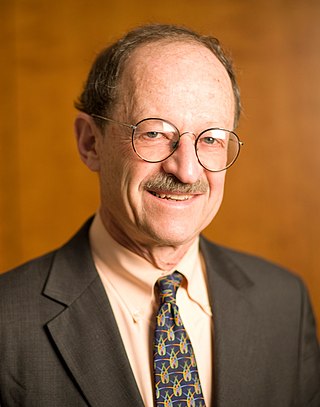
Harold Eliot Varmus is an American Nobel Prize-winning scientist. He is currently the Lewis Thomas University Professor of Medicine at Weill Cornell Medicine and a senior associate at the New York Genome Center.

Bruce Michael Alberts is an American biochemist and the Chancellor’s Leadership Chair in Biochemistry and Biophysics for Science and Education, Emeritus at the University of California, San Francisco. He has done important work studying the protein complexes which enable chromosome replication when living cells divide. He is known as an original author of the "canonical, influential, and best-selling scientific textbook" Molecular Biology of the Cell, and as Editor-in-Chief of Science magazine.
Stephen J. Ceci is an American psychologist at Cornell University. He studies the accuracy of children's courtroom testimony, and he is an expert in the development of intelligence and memory. He has been the recipient of numerous awards, including the prestigious Lifetime Contribution Awards from the American Psychological Association (APA) and the Association for Psychological Science (APS) as well as many divisional and smaller society awards.

Ismail Serageldin, Founding Director of the Bibliotheca Alexandrina (BA), the new Library of Alexandria, inaugurated in 2002, is currently, Emeritus Librarian, and member of the Board of Trustees of the Library of Alexandria. He serves as Chair or Member of a number of advisory committees for academic, research, scientific and international institutions and civil society efforts, and serves on the Advisory Committee of the World Social Science Report for 2013 and 2016, as well as the UNESCO-supported World Water Scenarios (2013) and the executive council of the Encyclopedia of Life (2010) and Chairs the Executive Council of the World Digital Library (2010). He also co-chaired the African Union's high level panel for Biotechnology (2006) and again for Science, Technology and Innovation (STI) in 2012–2013, and was a member of the ICANN Panel for the review of the internet future (2013).
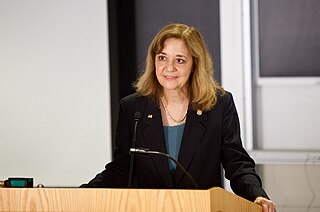
Rosina M. Bierbaum is currently the Roy F. Westin Chair in Natural Economics and Research Professor at the University of Maryland's School of Public Policy. She is also a professor and former dean at the University of Michigan School of Natural Resources and Environment (SNRE). She was hired in October 2001, by then-University of Michigan President, Lee Bollinger. She is also the current Chair of The Scientific and Technical Advisory Panel (STAP) that provides independent scientific and technical advice to the GEF on its policies, strategies, programs, and projects.

Mohamed Hag Ali Hag el HassanOMRI GCONMC FAAS FIAS FTWAS is a Sudanese-Italian mathematician and physicist who co-founded numerous scientific councils. He is currently the President of The World Academy of Sciences.

John Paul Holdren is an American scientist who served as the senior advisor to President Barack Obama on science and technology issues through his roles as Assistant to the President for Science and Technology, Director of the White House Office of Science and Technology Policy, and Co-Chair of the President's Council of Advisors on Science and Technology (PCAST).
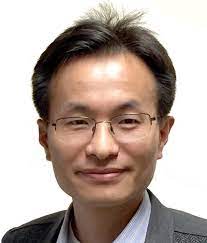
Peidong Yang is a Chinese-American chemist, material scientist, and businessman. He is currently a professor at the University of California, Berkeley and a member of the American Academy of Arts and Sciences. He is a Professor of Chemistry and a Professor of Materials Science. His research group studies the synthesis of nanomaterials and their electronic and optical properties. He is also a Department Head at the Joint Center for Artificial Photosynthesis, Senior Faculty Scientist at Lawrence Berkeley National Laboratory, and Deputy Director of the Center of Integrated Nanomechanical Systems (COINS). He is an associate editor of the Journal of the American Chemical Society, an American Chemical Society Journal.
Dr. Abdallah Daar is an Emeritus Professor of Clinical Public Health, Global Health, and Surgery at the University of Toronto. He has also been a Senior Scientist at the Research Institutes of University Health Network/Toronto General Hospital Research Institute, and the Hospital for SickKids. At the University of Toronto Joint Centre for Bioethics, from 2001 to 2007, he was co-director of the Canadian Program on Genomics and Global Health, and Director of the University of Toronto Program in Applied Ethics and Biotechnology. At the Sandra Rotman Centre, he was Director of Ethics and Commercialization.
Thumbi Ndung’u is a Kenyan-born HIV/AIDS researcher. He is the deputy director (Science) and a Max Planck Research Group Leader at the Africa Health Research Institute (AHRI) in Durban, South Africa. He is Professor of Infectious Diseases in the Division of Immunity and Infection, University College London. He is Professor and Victor Daitz Chair in HIV/TB Research and Scientific Director of the HIV Pathogenesis Programme (HPP) at the Nelson R. Mandela School of Medicine, University of KwaZulu-Natal. He holds the South African Research Chair in Systems Biology of HIV/AIDS. He is an Adjunct Professor of Immunology and Infectious Diseases at the Harvard T.H. Chan School of Public Health. He is the Programme Director of the Sub-Saharan African Network for TB/HIV Research Excellence (SANTHE), a research and capacity building initiative funded by the African Academy of Sciences and the Wellcome Trust.
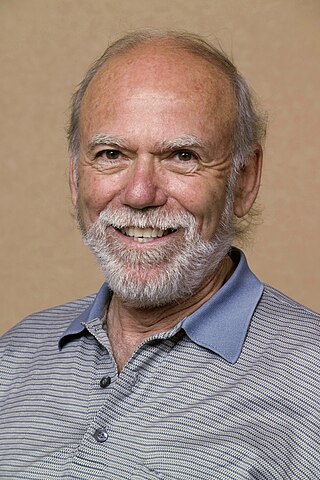
Barry Clark Barish is an American experimental physicist and Nobel Laureate. He is a Linde Professor of Physics, emeritus at California Institute of Technology and a leading expert on gravitational waves.

Tilman Brück is a German economist specializing in development and the economics of peace, conflict and terrorism. He was full professor of development economics at Humboldt University of Berlin. He also headed the department of Development and Security at the German Institute for Economic Research (DIW).

Tan Sri Zakri bin Abdul Hamid has had a distinguished career in science as a researcher, educator, administrator and diplomat.
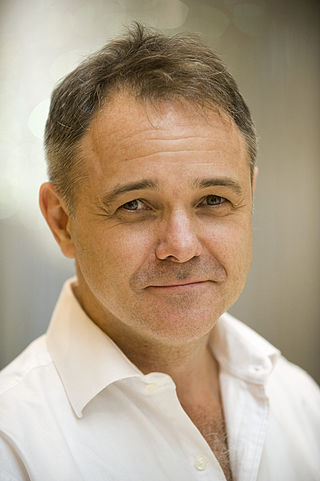
Sir Jeremy James Farrar is a British medical researcher who has served as chief scientist at the World Health Organization since 2023. He was previously the director of the Wellcome Trust from 2013 to 2023 and a professor of tropical medicine at the University of Oxford.

Quarraisha Abdool Karim is an infectious diseases epidemiologist and co-founder and Associate Scientific Director of CAPRISA. She is a Professor in Clinical Epidemiology, Columbia University, New York and Pro-Vice Chancellor for African Health, University of KwaZulu-Natal, South Africa.
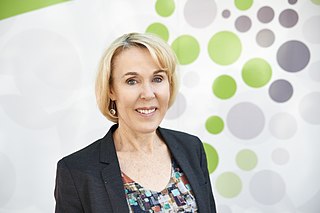
Helen Rees OBE GCOB is a medical researcher and the founder and Executive Director of the Wits Reproductive Health and HIV Institute of the University of Witwatersrand. She has led many HIV prevention and sexual and reproductive health studies and advised on vaccination strategies to help prevent various medical conditions.
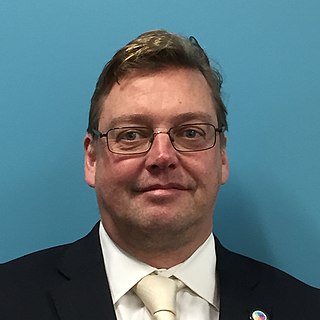
David A. W. Hutchinson is a quantum physicist and professor at the University of Otago, Dunedin, New Zealand. He is the inaugural and current Director of the Dodd-Walls Centre for Photonic and Quantum Technologies, a New Zealand government-funded national Centre of Research Excellence. Hutchinson's research interests are in the areas of quantum biology, Bose-Einstein condensates, and the underlying mathematics of quantum physics.
The International Science Council (ISC) is an international non-governmental organization that unites scientific bodies at various levels across the social and natural sciences. The ISC was formed with its inaugural general assembly on 4 July 2018 by the merger of the former International Council for Science and the International Social Science Council (ISSC), making it one of the largest organisations of this type.

Muntaser Eltayeb Ibrahim is a Sudanese geneticist and professor of molecular biology at the University of Khartoum, where he leads its Institute of Endemic Diseases. Science described him as "one of Sudan's most distinguished living scholars". His research focuses on human genetic diversity in Africa, human genetic variation contributing to susceptibility to infectious diseases such as malaria and leishmaniasis, and cancer genetics.

















